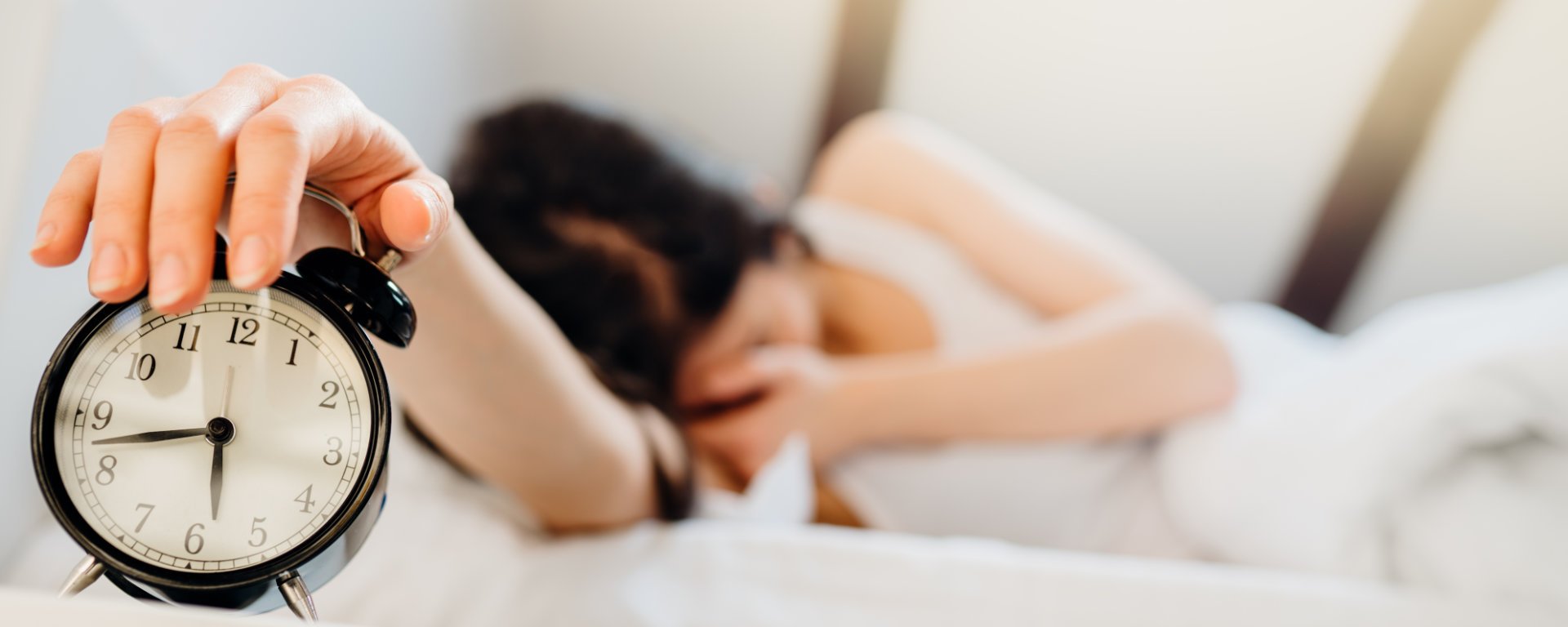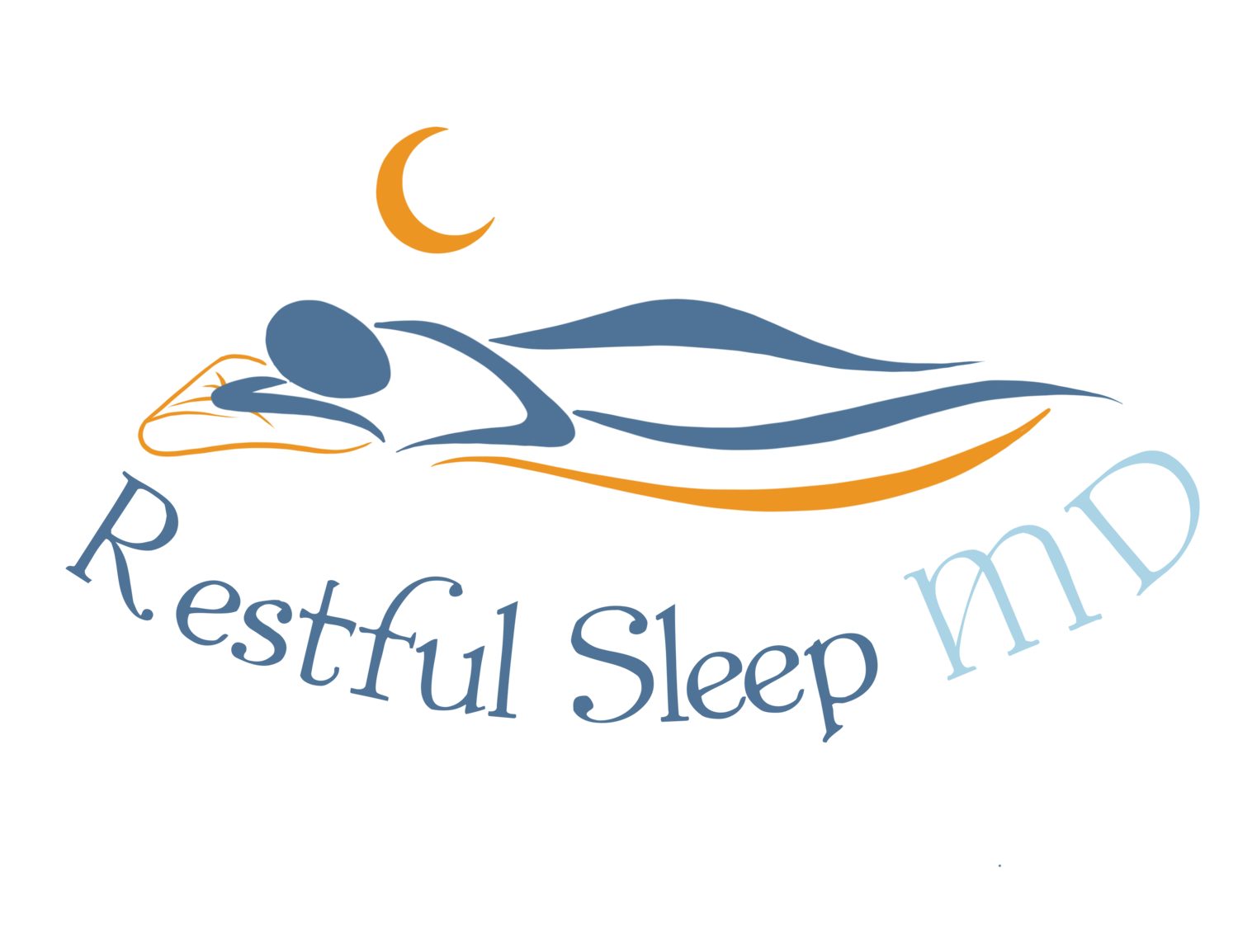
Why Your Sleep Changes During Menopause (And What Actually Works to Fix It)
Sleep disruptions during menopause are more than just an inconvenience—they can affect every part of your physical, emotional, and mental health. If you're a woman in Philadelphia or the Main Line area struggling with sleepless nights, night sweats, or persistent fatigue, you're not alone. Up to 75% of women experience sleep issues during perimenopause and menopause.
At The Restful Sleep Place in Horsham, Pennsylvania, Dr. Funke Afolabi-Brown, a PENN-trained, triple-board-certified sleep medicine physician, specializes in helping women navigate midlife sleep transitions with compassion, scientific insight, and personalized care. She serves patients across Philadelphia, the Main Line, and throughout Pennsylvania, New Jersey, and California through both in-person and virtual consultations.
The Hidden Sleep Crisis: How Hormones Hijack Your Rest
Menopause-related sleep issues go far beyond occasional night sweats. Hormonal shifts, especially the decline of estrogen and progesterone, alter your brain’s ability to regulate temperature, mood, and your sleep architecture.
Estrogen helps regulate your internal thermostat and supports serotonin production—an essential neurotransmitter for deep sleep. Progesterone has calming effects and promotes deeper, more restorative rest. As these hormones decline, your sleep becomes lighter, more fragmented, and less restorative.
Women in the Philadelphia area commonly report:
Difficulty falling asleep
Waking multiple times each night
Early morning awakenings
Drenched sheets from night sweats
Constant fatigue despite 7–9 hours in bed
The Overlooked Impact of Perimenopause on Sleep
Many women don’t realize their sleep challenges may start during perimenopause—often years before their final period. This transitional stage, which can last 4 to 10 years, brings erratic hormone fluctuations that disrupt previously sound sleep.
In Dr. Afolabi-Brown’s experience with patients across the Main Line and Greater Philadelphia, many women in their early 40s assume stress, aging, or a busy lifestyle is to blame—when perimenopause is the true cause.
Key signs of perimenopause sleep issues include:
Sudden onset insomnia in previously good sleepers
Unexplained nighttime awakenings
Feeling unrefreshed despite adequate sleep hours
Sleep that seems “light” or shallow
Night Sweats and the Menopause Thermostat Loop
One of the most disruptive symptoms Dr. Afolabi-Brown treats in her Philadelphia sleep practice is night sweats. Caused by estrogen withdrawal, these episodes are linked to a hypersensitive hypothalamus, your body’s internal thermostat.
Typical night sweat cycle:
Wake up drenched in sweat
Remove covers or change clothes
Cool down too much and wake up again
This stop-and-start sleep cycle can occur multiple times a night, leading to severe sleep fragmentation and next-day exhaustion. Up to 85% of women in menopause experience night sweats to varying degrees.
Evidence-Based Sleep Strategies That Actually Work
Dr. Afolabi-Brown recommends a multifaceted, research-supported approach tailored to each woman’s lifestyle and health profile. Here are several strategies she regularly shares with patients in Philadelphia and the Main Line:
Create a Cool, Disruption-Free Sleep Environment
Keep your bedroom between 65–68°F
Use breathable, moisture-wicking bedding
Invest in cooling pillows or mattress toppers
Use blackout curtains or an eye mask
Minimize noise with earplugs or white noise machines
Nutrition and Timing Matter
Avoid heavy meals within 2–3 hours of bedtime
Limit caffeine after 2 PM and avoid alcohol at night
Stay hydrated but reduce fluids after dinner
Reduce spicy foods if hot flashes worsen after eating
Exercise for Better Sleep (But Not Too Late)
Aim for 150 minutes/week of moderate activity
Avoid vigorous exercise within 3–4 hours of bedtime
Try morning walks or afternoon yoga to regulate stress and hormone balance
Weight-bearing exercises support overall menopausal health
Manage Stress Before It Disrupts Sleep
Midlife often brings added stress from work, caregiving, and life transitions. These stressors, when compounded by hormone shifts, can worsen sleep issues.
Dr. Afolabi-Brown recommends:
Deep breathing exercises or progressive muscle relaxation
Meditation or guided sleep audio before bed
Evening journaling or screen-free wind-down time
Therapy or support groups for mood and anxiety management
When It’s Time to Seek Professional Help
If you’ve tried lifestyle changes but still wake up exhausted or have symptoms like loud snoring, gasping during sleep, or daytime fog, it may be time for a comprehensive sleep evaluation.
Hormonal shifts during menopause can increase the risk for obstructive sleep apnea, especially in women over 40. Dr. Afolabi-Brown helps women in Philadelphia and surrounding areas identify and treat co-existing conditions like:
Sleep apnea
Restless leg syndrome
Circadian rhythm disorders
Advanced diagnostics, including sleep studies and at-home testing, are available to confirm the cause of your sleep disruptions.
The Role of Supplements and Medications
While lifestyle optimization comes first, some women may benefit from specific supplements or therapies, including:
Melatonin (0.5–3 mg before bed)
Magnesium glycinate (200–400 mg in the evening)
Targeted hormonal therapy in collaboration with your OB-GYN or primary care physician
Always consult with your doctor before starting any new supplement regimen.
Start Your Sleep Recovery Plan Today
You don’t have to accept poor sleep as an inevitable part of menopause. With expert care from one of Philadelphia’s top sleep specialists, you can reclaim restful, uninterrupted sleep—even during hormonal transitions.
Dr. Funke Afolabi-Brown and her team offer:
In-depth consultations
Personalized sleep action plans
In-person care in Horsham, PA
Virtual appointments for women across Philadelphia, the Main Line, Pennsylvania, New Jersey, and California
Start by tracking your symptoms in a sleep diary, then schedule your consultation to explore tailored solutions that work for you.
FAQs
Where can I find a menopause sleep specialist in Philadelphia?
Dr. Funke Afolabi-Brown offers both in-person and virtual menopause sleep consultations through her practice, The Restful Sleep Place in Horsham, PA, serving Philadelphia and beyond.
Does Dr. Afolabi-Brown see patients from the Main Line?
Yes, she frequently sees patients from Ardmore, Bryn Mawr, Villanova, and other Main Line communities.
What’s the best way to manage night sweats at night?
Keep your bedroom cool, use moisture-wicking sheets, avoid alcohol, and consider cooling pillows or fans for temperature regulation.
How long before I see results from sleep hygiene changes?
Most women begin to notice improvements within 2 to 4 weeks of consistent changes.
Can menopause really cause sleep apnea?
Yes. Declining hormones can affect airway muscle tone, increasing the risk for obstructive sleep apnea, especially in midlife women.

